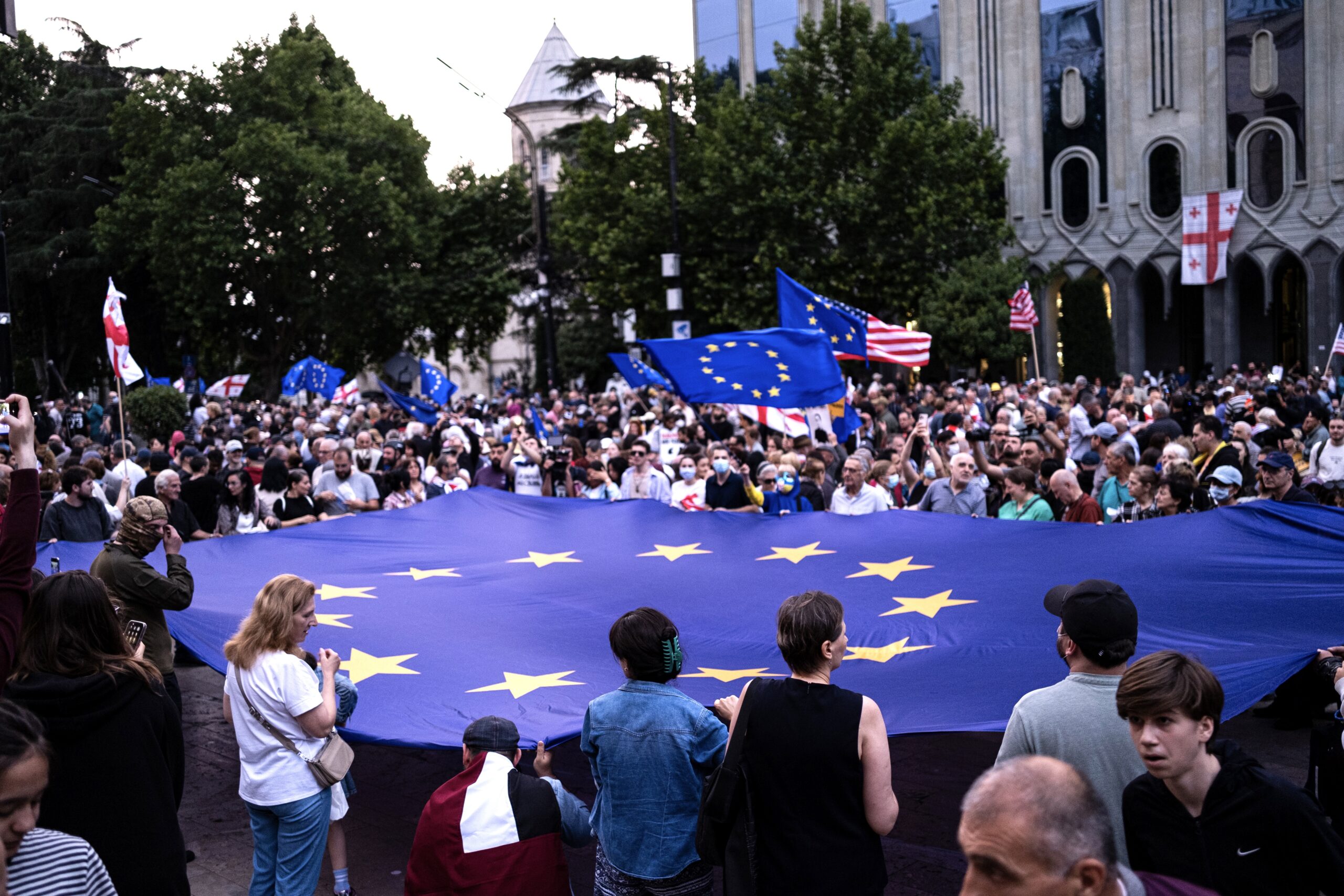Nine international human rights organizations expressed “profound concerns” over what they called the Georgian government’s “all-out assault” on human rights and civil society groups in the country, calling on the authorities to “immediately and unconditionally” end the persecution of civil society and media groups, and on the European Union, its member states, and the wider international community to take “urgent and coordinated measures to respond to and end this crackdown.”
The signatories of the September 10 statement are Amnesty International, Araminta, Front Line Defenders, Human Rights House Foundation (HRHF), Human Rights Watch, International Federation for Human Rights (FIDH), in the framework of the Observatory for the Protection of Human Rights Defenders, International Rehabilitation Council for Torture Victims (IRCT), Protection International, and World Organisation Agaist Torture (OMCT), in the framework of the Observatory for the Protection of Human Rights Defenders.
The statement reviews the Georgian authorities’ freezing of the bank accounts of seven CSOs in August and of several funds in March under the so-called “sabotage” probe, as prosecutors claimed the groups funded protesters who committed “violent acts” against police during the 2024 protests, citing what appeared to be modest purchases of protective gear such as face masks, gas helmets, goggles and pepper spray, as well as support for protesters and their families, including by covering fines and providing free legal aid.
“The authorities blatantly misrepresent the organizations’ legitimate human rights work and falsely claim that civil society groups used their funds to endorse and sponsor protests in Georgia’s capital, Tbilisi,” the statement said.
The organizations also noted that CSO leaders were summoned by prosecutors under the “sabotage” probe, before reviewing recent Georgian Dream legislation targeting civil society, including the Foreign Agents Law, the Foreign Agents Registration Act (FARA), and amendments to the Grants Law requiring foreign donors to obtain government approval before disbursing funds to local groups.
“The adopted laws and ongoing investigations are clearly aimed at criminally penalizing and eradicating all dissent and nonconformity in the country, and go against Georgia’s international legal obligations,” the statement noted.
The statement also cited the Georgian authorities’ use of excessive force during protests, the beating of opposition figures and independent journalists by riot police and “informal violent groups associated with the authorities,” and noted that no police officer has been prosecuted despite allegations of abuse.
“While failing to take effective steps to address serious allegations of police abuse, the authorities charged and convcited dozens of protesters on spurious criminal charges of using violence against law enforcement officials, sentencing some to lenghtly prison terms,” the statement added, specifically citing the jailing of eleven protesters who were found guilty of “disrupting public order” and sentenced to two years in prison each.
The organizations said international actors have a “critical role to play” in Georgia’s human rights crisis and called on the EU and member states to publicly condemn the judicial and other harassment of civil society, use all diplomatic and legal tools at their disposal to pressure officials involved in abuses, raise the issue at the UN Human Rights Council, push for comprehensive UN reporting, invoke the OSCE Moscow Mechanism, and urgently overcome administrative blockages to provide additional funding to Georgian civil society to help them withstand the impact of asset freezes.
Also Read:
- 20/08/2025 – EPRC, Another NGO, Reports Being Inspected Under Georgian FARA
- 15/08/2025 – Six CSOs Say They Are Inspected under Georgian FARA
- 23/06/2025 – ISFED Says It Also Received Anti-Corruption Bureau’s Inspection Order
- 18/06/2025 – Five Organizations Report Being Inspected Under “Russian Laws”
This post is also available in: ქართული
